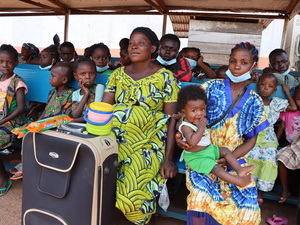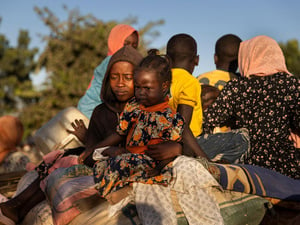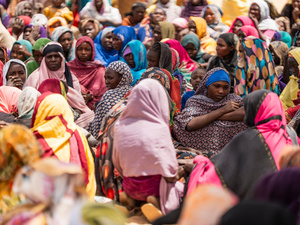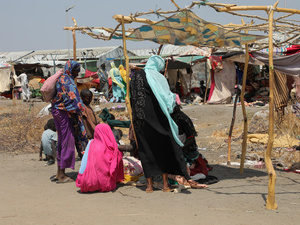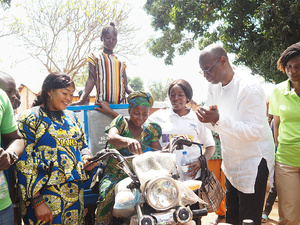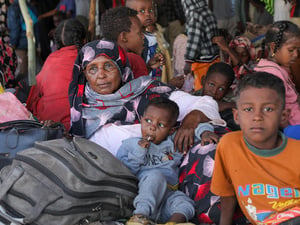Thousands of Central Africans flee to Republic of Congo to escape violence
Thousands of Central Africans flee to Republic of Congo to escape violence

Three Central African Republic refugees with their babies in Betou, Republic of Congo, after fleeing violence across the border in their village.
BETOU, Republic of Congo, December 20 (UNHCR) - The sectarian violence ravaging Bangui and other parts of Central African Republic has spread south to the Lobaye prefecture, forcing thousands to flee to Republic of the Congo.
Since March 2013, when the former Seleka rebel alliance captured Bangui, some 11,000 Central African civilians have crossed the border. Most have found shelter in the small town of Betou, which lies on the Oubangui River in northern Republic of Congo's Likouala department.
Hundreds have crossed in the past two weeks as the security situation in the country continued to deteriorate with former Seleka forces clashing with Christian "Anti-Balaka" militias in Bangui, Bossangoa and elsewhere in the poverty stricken landlocked country.
Many say that the Christian and Muslim communities in Lobaye co-existed peacefully until recently. "In our village, we never witnessed sectarian hate, even after the overthrow [in March] of [President François] Bozizé," said Sylvia, who fled with friends from the village of Mbata. She said the attackers looted the village, which lies some 35 kilometres from Betou.
"We never thought that the conflict in Bangui would disturb our lives," added Bénédicte, also from Mbata. She said the situation had changed in late November, when violence erupted after a Seleka man was killed by a supporter of Bozizé in Mbata. "Before that, everything was fine, we were all living together in peace," she stressed.
Other refugees have been coming from Bolo loke and Mbaiki villages in Lobaye. Many walk for days to reach safety in this isolated and hard to access area of Republic of the Congo. Twenty-two-year-old Sylvia fled Mbata with her family and two other families and walked through the forest for six days to reach Betou.
"We lost our way on the forest paths, but we met a group of locals who took us to the village of Ngongo. They told us that UNHCR staff were there a few days before and we knew where to go for help," Sylvia told UNHCR while breastfeeding her baby girl. On the day she and her friends were taken last week from Ngongo to Betou, about 350 refugees arrived there from Central African Republic.
In Betou, about 60 per cent of the refugees live with host families while the rest are provided with shelter in the April 15 or Ikpengbele refugee camps, where they are registered and given shelter and aid by UNHCR, the World Food Programme and their partners. They have access to health care and basic education for the children.
UNHCR and its partners also organize vocational training and literacy courses for adults. Sylvia and her friend Janis never finished elementary school, Bénédicte has never been to school at all.
They will now get a chance to become literate in the French language. Meanwhile, the three young mothers are just happy to be alive, safe and together.
By Louise Culot in Betou, Republic of Congo

